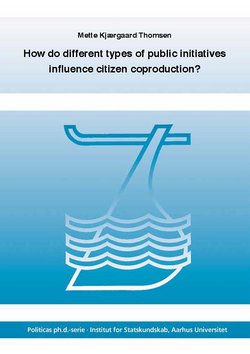Mette Kjærgaard Thomsen
How do different types of public initiatives influence citizen coproduction?

During the past decade public managers have increasingly focused on involving citizens more in the provision of public services. Citizens may contribute in several ways: When parents join the school board or help their children with homework, they are coproducing education services together with the teachers. Similarly, when citizens look out for their neighbor’s house or participate in neighborhood watch, they are coproducing law enforcement together with the police. But what kinds of public initiatives are required to get citizens more involved in coproduction?
The dissertation examines how public initiatives targeting either public service agents or citizens influence citizen input to coproduction and service outcomes. Specifically, the dissertation examines the effect of two types of public initiatives. The first initiative aims to increase input from citizens, the second to increase input from public service agents. The effect of the two initiatives is tested in the area of primary education. To handle endogeneity problem and interpret the results as causal effects, the dissertation mainly employs data from field experiments.
The dissertation shows that it is not possible to increase citizen input to coproduction by simple means such as information material, and that increasing public input may have a positive spill-over effect on citizen input to coproduction. The dissertation offers new theoretical insight on how coproduction initiatives that encourage citizens to coproduce may influence their motivation, and it advances our theoretical understanding of how an increase in public input may influence citizen input to coproduction.
![]() Ophavsretten tilhører Politica. Materialet må ikke bruges eller distribueres i kommercielt øjemed.
Ophavsretten tilhører Politica. Materialet må ikke bruges eller distribueres i kommercielt øjemed.